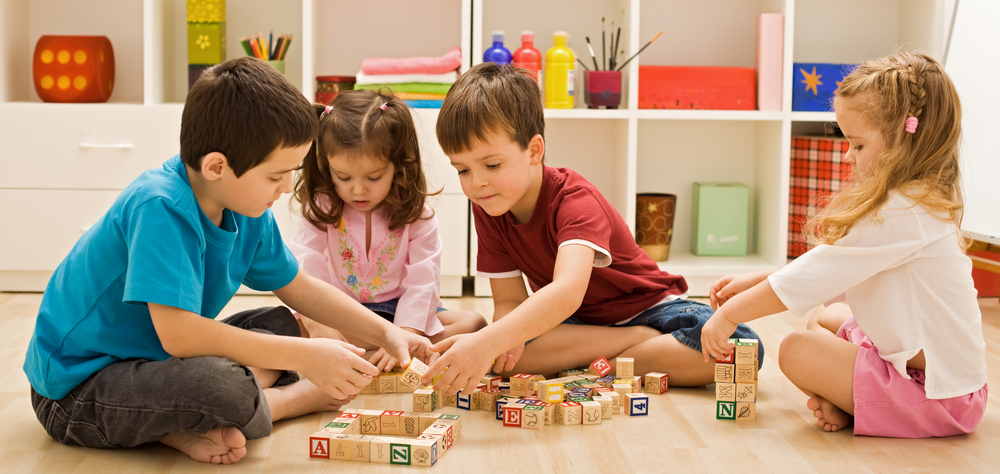
The Child and Adolescent Psychiatry Training Program
The Child and Adolescent Psychiatry Resident Training Program was begun in 1989 by Dr. Martin J. Drell, former president of the American Academy of Child and Adolescent Psychiatry. The program received its latest accreditation on April 22, 2015 and is fully accredited and citation free. In 2016, due to an increase in interest in our program, we increased to four resident positions. The program traditionally has 6 residents (3 in the first year and 3 in the second year). Most of our residents that have graduated from our program have successfully taken and obtained certification from the American Board of Psychiatry and Neurology in Adult and Child Psychiatry. Generally, 1/3 of our residents go into Public Psychiatry, 1/3 go into Private Psychiatry and 1/3 go into Academic psychiatry. The program offers a didactic and clinical experience that is above and beyond the routine/basic requirements of the ACGME and ABPN RRC recommendations for successful completion of a resident's two year required training. The program offers diverse clinical experiences in working with infants, children, adolescents, and their families. The training is balanced in both psychotherapy and psychopharmacology. It is designed to prepare residents for future changes in healthcare, as well as for their board examinations.
STATEMENT OF PURPOSE
The overarching purpose of the Louisiana State University Health Sciences Center and School of Medicine Child and Adolescent Psychiatry Residency Program is fourfold:To Educate, To Serve, To Collaborate, and To Contribute.
1. To Educate and train physicians in the field of Infant, Child, and Adolescent Psychiatry.
• Establish a dynamic curriculum and training sites that reflect current and future
practices that will prepare trainees to be leading clinicians and educators.
• Strive to seek out and provide an enriched variety of clinical exposures and differing
care models, including but not limited to collaborative, crisis, direct, consultative,
supervisory, and coordinated specialty care.
2. To Serve the behavioral health diagnostic and treatment needs of children and adolescents and their families in Southeast Louisiana.
• Provide the highest quality of patient care.
• Serve as an educational resource to families, schools, and other institutions throughout
Southeast Louisiana regarding the behavioral health care of children and adolescents.
3. To Establish collaborative relationships with other sections in the department, with other departments in the Health Sciences Center, and with schools and community agencies, particularly in areas which represent strengths of the program or which address unmet clinical, educational, and research needs.
• Strengthen consultation and collaborative services to support pediatricians and
pediatric subspecialties in their care of children with behavioral health needs
• Build greater capacity for statewide consultation and support of community based
practitioners.
4. To Contribute to the advancement of behavioral health care, quality of care, and treatment options for the children and adolescents of Southeast Louisiana.
• Participate in scholarly activities, teaching, advocacy, and research endeavors
that contribute to the knowledge base of the field of Child and Adolescent Psychiatry.
• Develop and implement creative ways to deliver care in a resource starved environment.
Components of the training program include:
- Special Summer Orientation with senior residents and faculty providing introductory lectures.
- Weekly Main Academic Seminar- focusing on major diagnoses, treatment modalities, trends, and neuroscience issues
- Special Topics Hour- includes Journal Club, Media Club, Interfellowship Journal Club with Addiction and C/L Psychiatry, Resident Wellness Meetings
- Departmental Grand Rounds.
- Option to attend Pediatric Grand Rounds at Children's Hospital
- Clinical Case Conference seminars and Clinical Practicums
- Weekly Therapy Seminars for each class of fellows.
- Inpatient Services - 9 months (3 months with children, 3 months with adolescents, and 3 months with a psycho-social, therapeutic focus).
- Autism Clinic
- Emergency/Crisis Intervention Experience
- Outpatient Experiences in community and private psychiatry.
- Outpatient Experience in Collaborative Care in a primary care setting.
- Outpatient 24 month continuity clinic. Specific clinic focused on learning psychotherapies (individual, family, parenting, & CBT).
- Infant/Early Childhood Fellowship built into second year program (one of a handful of prestigious Harris programs in the country).
- School and Pediatric outpatient rotations.
- Pediatric Consultation/Liaison rotation.
- Academic Development and QI Seminar.
- Research experiences available.
- Telemedicine experience.
- Forensics experience.
- Substance Use Disorders experience.
- Pediatric Neurology rotation and associated lectures.
Each resident has weekly psychotherapy supervision, as well as a site specific supervisor for each clinical rotation. There are rounds on the inpatient and C/L services, and a weekly two hour case review conference and scholarly presentation at the Algiers Behavioral Health Clinic (public sector).
